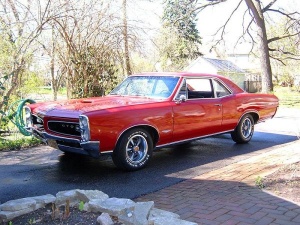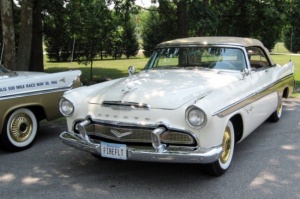Chapter 6
- Please keep these annotations SPOILER-FREE by not revealing information from later pages in the novel.
Page numbers refer to editions with 369 pages, where the story begins on page 1. Not sure if there are other editions with variant pagination. Please let us know otherwise.
Contents
Page 68
A lunch date had just happened to cancel
Afternoon, Friday, the fourth day of the narrative.
Nickel
"He showed up at a peculiar skid-row eatery off Temple where wine abusers up from bedrolls in vacent lots back of what remained of the old Nickel."
The part of downtown centered around 5th Street is Los Angeles’ Skid Row and has long been referred to by locals and detectives in noir novels as "The Nickel." While downtown Los Angeles has gone through a revitalization in recent years, it has mostly skipped over the Skid Row neighborhood. Listen to Tom Waits' wino lullaby "On The Nickel." "...off the nikel..." page 320. "Plastic Nickel" page 293.
Page 72
Wouldn't it Be Nice
Beach Boys, 1966, off the album Pet Sounds.
Page 73
Tommy's
Tommy's is a famous burger chain in the LA area. This place was a food shrine to the American Hamburger and people used to come from miles around to get them. Pynchon moves the location one block east from Rampart and Beverly to Coronado and Beverly.
Krishna, the fry cook, could this be the same Krishna who shows up in Vineland as the sound man for 24 fps?/CW/
Page 74
Kahuna Airlines
Airline made famous in Pynchon's Vineland, a non-sked flying out of LAX’s East Imperial Terminal to Hawaii.
Page 75
Ron Karenga
Ron Karenga is an influential African American activist. He invented Kwanzaa. Back in the day in some quarters he was thought to be an agent provocateur in the employ of the FBI, especially after the shoot out at UCLA in January 1969 that left two Black Panthers, Alprentice Bunchy Carter and John Huggens, dead.
Can I be frank for a minute
A bad joke since Doc starts to sing Frank Sinatra's "Fly Me to the Moon."
...the Director...spade penises...
Long time FBI director J. Edgar Hoover, now famous for his paranoia and closeted homosexuality.
Lew Erskine
main character in the TV show, "F.B.I.," which ran 1965-74. IMDB
Page 76
Ralph's
Ubiquitous grocery chain in California. Plays an important role in the Coen brothers' The Big Lebowski, a film to which Inherent Vice is often compared.
Coming out of work later in the day
Afternoon, Friday, the fourth day of the narrative.
Page 77
I'm working weeknights at Club Asiatique
Afternoon, Friday, the fourth day of the narrative. Doc sees Jade this night at Club Asiatique, still nominally a weeknight.
before he's slipped, as Jim Morrison might put it, "into unconsciousness"...
lyrics from "The Crystal Ship" by The Doors: "Before you slip into unconsciousness / I'd like to have another kiss." The song was on the Doors' first album, The Doors, released in January 1967. Have a listen on YouTube...
as Fats Domino always sez, "Never to be"...
"Blueberry Hill" was written in 1940 and was recorded by Gene Krupa, Glenn Miller, Jimmy Dorsey and Gene Autry, and others. In 1956, Fats Domino (b. 1928) recorded it and it was a #2 hit on the Billboard Top 40. Excerpt:
- The wind in the willow played
- Love's sweet melody
- But all of those vows we made
- Were never to be
Motella gave him a skeptical O-O
Once over.
Hawaiian shirt
One was worn by Tyrone Slothrop in Gravity's Rainbow, part 2.
Page 78
Beach Boys
This must follow some Beach Boys melody. Anyone?
Pynchon's Boards' lyrics bear more than passing similarity to the lyrics of the Beach Boys' 1963 song, "Shut Down."A live version. Note the scarcely-competent sax solo by Mike Love, which provides some support for Doc's and Hope Harlingen's opinion, at page 37, of the general level of surf sax playing.
The Beach Boys song was co-written with KHJ DJ Roger Christian, who was likely the source of the car terminology.
GTO
Page 79
A toda madre!
from Urban Dictionary:
Mexican slang that means something is totally awesome. Often abbreviated, especially in graffiti, as ATM.
"La fiesta estuvo a toda madre." translation: "The party was totally awesome."
Page 80
like Moe going, "Spread out!"
Moe, of the Three Stooges would yell "Spread out!" to the other two, and sometimes some other people, when fighting.
Kai Tak
Kai Tak Airport was the international airport of Hong Kong from 1925 until 1998.
San Pedro, Terminal Island, Vincent Thomas Bridge
All back in L.A.
Page 81

Cheongsam
a body-hugging one-piece Chinese dress for women.
Fan-tan... dollar-a-stone Go
Fan-Tan is a form of gambling long played in China that has similarities to roulette. Wikipedia. The "stones" in "dollar-a-stone Go" most likely refers to the point differential at the end of the game, usually ten or less between evenly matched players.
Page 82
LZ
Vietnam soldier slang for "landing zone."
Page 83
Dan ranking
the dan ranking system is a Japanese mark of level is used in martial arts (and also traditional fine arts, including mastery of the board game, Go).

The nearly total absence of lighting
Night, Friday, the fourth day of the narrative.
Page 85

PX
abbreviation of Post Exchange. A service mark used for a military store on an Army or Naval base that sells goods to military personnel. Apparently, the PX often appeared in the Beetle Bailey comic strip from the 1950s. Wikipedia.
| Chapter 1 pp. 1-18 |
Chapter 2 pp. 19-45 |
Chapter 3 pp. 46-49 |
Chapter 4 pp. 50-54 |
Chapter 5 pp. 55-67 |
| Chapter 6 pp. 68-88 |
Chapter 7 pp. 89-110 |
Chapter 8 pp. 111-123 |
Chapter 9 pp. 124-153 |
Chapter 10 pp. 154-162 |
| Chapter 11 pp. 163-185 |
Chapter 12 pp. 186-206 |
Chapter 13 pp. 207-234 |
Chapter 14 pp. 235-255 |
Chapter 15 pp. 256-274 |
| Chapter 16 pp. 275-295 |
Chapter 17 pp. 296-314 |
Chapter 18 pp. 315-342 |
Chapter 19 pp. 343-350 |
Chapter 20 pp. 351-363 |
| Chapter 21 pp. 364-369 |
